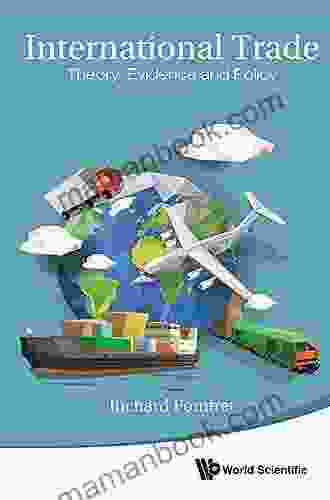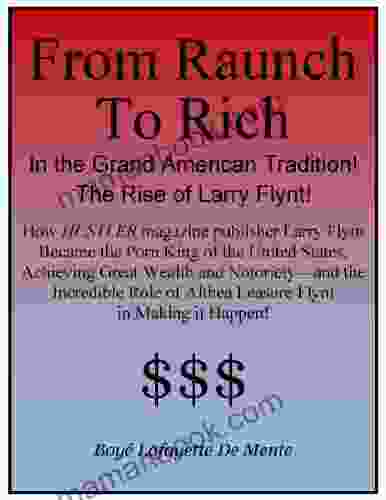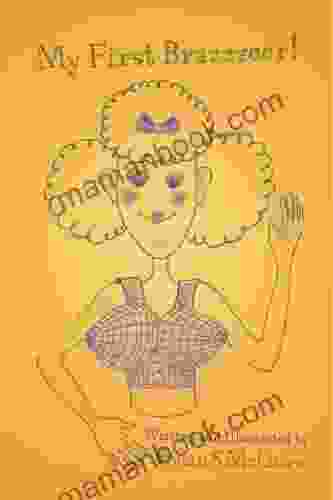International Trade Theory: Evidence and Policy Implications

4 out of 5
| Language | : | English |
| File size | : | 3598 KB |
| Text-to-Speech | : | Enabled |
| Enhanced typesetting | : | Enabled |
| Word Wise | : | Enabled |
| Print length | : | 320 pages |
| Screen Reader | : | Supported |
International trade is the exchange of goods and services between countries. It is a major driver of economic growth and development, and has been a key factor in the globalization of the world economy. International trade theory seeks to explain the patterns and determinants of trade between countries, and to assess the effects of trade on economic outcomes.
Classical Trade Theory
The classical theory of international trade was developed by economists such as Adam Smith, David Ricardo, and John Stuart Mill. Classical trade theory is based on the principle of comparative advantage, which states that countries should specialize in producing and exporting goods and services for which they have a comparative advantage, and import goods and services for which they have a comparative disadvantage.
Comparative advantage arises from differences in factor endowments between countries. Factor endowments are the resources that a country has to produce goods and services, such as labor, capital, and natural resources. Countries that have a comparative advantage in producing a particular good or service are those that can produce it with the lowest opportunity cost.
The classical theory of international trade predicts that free trade will lead to gains from trade for all countries involved. These gains from trade come from increased efficiency in production, as countries specialize in producing goods and services for which they have a comparative advantage. Free trade also leads to lower prices for consumers, as countries can import goods and services from other countries at a lower cost than they could produce them domestically.
Modern Trade Theory
The modern theory of international trade was developed in the 20th century by economists such as Heckscher-Ohlin, Paul Samuelson, and Ronald Jones. Modern trade theory builds on the classical theory of comparative advantage, but it takes into account a wider range of factors that can affect trade patterns, such as economies of scale, technological change, and government policies.
Modern trade theory suggests that economies of scale can lead to trade even between countries that have the same factor endowments. This is because economies of scale allow countries to produce goods and services at a lower cost if they produce them on a larger scale.
Technological change can also lead to trade, even between countries that have the same factor endowments. This is because technological change can create new industries and products, and can also lower the cost of producing goods and services.
Government policies can also affect trade patterns. For example, tariffs and quotas can restrict trade, while subsidies can promote trade.
The Evidence on the Effects of Trade
The empirical evidence on the effects of trade is mixed. Some studies have found that trade leads to economic growth, while other studies have found that trade can lead to inequality and environmental degradation.
The evidence on the relationship between trade and economic growth is generally positive. Studies have shown that countries that are more open to trade tend to have higher rates of economic growth. However, the relationship between trade and economic growth is complex, and there are a number of other factors that can affect economic growth, such as government policies, macroeconomic stability, and human capital.
The evidence on the relationship between trade and inequality is more mixed. Some studies have found that trade can lead to increased inequality, while other studies have found that trade can actually reduce inequality. The relationship between trade and inequality is likely to depend on a number of factors, such as the type of trade, the trade policies of the countries involved, and the distribution of income within countries.
The evidence on the relationship between trade and environmental sustainability is also mixed. Some studies have found that trade can lead to environmental degradation, while other studies have found that trade can actually promote environmental sustainability. The relationship between trade and environmental sustainability is likely to depend on a number of factors, such as the type of trade, the trade policies of the countries involved, and the environmental regulations in place in those countries.
Policy Implications
The policy implications of trade theory are complex and context-specific. However, some general principles can be drawn from the theory.
First, trade liberalization is generally beneficial for economic growth. However, trade liberalization can also lead to increased inequality and environmental degradation. Therefore, it is important to carefully consider the potential costs and benefits of trade liberalization before implementing it.
Second, trade agreements can be used to promote trade liberalization. However, trade agreements can also be used to protect domestic industries from foreign competition. Therefore, it is important to carefully consider the design of trade agreements to ensure that they promote trade liberalization without causing unnecessary harm to domestic industries.
Third, developing countries face a number of challenges in implementing trade liberalization. These challenges include:
* Lack of infrastructure * High trade costs * Weak institutions * Corruption
It is important to address these challenges in order to help developing countries benefit from trade liberalization.
International trade is a complex and dynamic field of study. International trade theory provides a framework for understanding the patterns and determinants of trade between countries, and for assessing the effects of trade on economic outcomes. The policy implications of trade theory are complex and context-specific, but some general principles can be drawn from the theory. These principles can help policymakers to design trade policies that promote economic growth, reduce inequality, and protect the environment.
4 out of 5
| Language | : | English |
| File size | : | 3598 KB |
| Text-to-Speech | : | Enabled |
| Enhanced typesetting | : | Enabled |
| Word Wise | : | Enabled |
| Print length | : | 320 pages |
| Screen Reader | : | Supported |
Do you want to contribute by writing guest posts on this blog?
Please contact us and send us a resume of previous articles that you have written.
 Top Book
Top Book Novel
Novel Fiction
Fiction Nonfiction
Nonfiction Literature
Literature Paperback
Paperback Hardcover
Hardcover E-book
E-book Audiobook
Audiobook Bestseller
Bestseller Classic
Classic Mystery
Mystery Thriller
Thriller Romance
Romance Fantasy
Fantasy Science Fiction
Science Fiction Biography
Biography Memoir
Memoir Autobiography
Autobiography Poetry
Poetry Drama
Drama Historical Fiction
Historical Fiction Self-help
Self-help Young Adult
Young Adult Childrens Books
Childrens Books Graphic Novel
Graphic Novel Anthology
Anthology Series
Series Encyclopedia
Encyclopedia Reference
Reference Guidebook
Guidebook Textbook
Textbook Workbook
Workbook Journal
Journal Diary
Diary Manuscript
Manuscript Folio
Folio Pulp Fiction
Pulp Fiction Short Stories
Short Stories Fairy Tales
Fairy Tales Fables
Fables Mythology
Mythology Philosophy
Philosophy Religion
Religion Spirituality
Spirituality Essays
Essays Critique
Critique Commentary
Commentary Glossary
Glossary Bibliography
Bibliography Index
Index Table of Contents
Table of Contents Preface
Preface Introduction
Introduction Foreword
Foreword Afterword
Afterword Appendices
Appendices Annotations
Annotations Footnotes
Footnotes Epilogue
Epilogue Prologue
Prologue Bill Browder
Bill Browder Emma Slate
Emma Slate Jimmy Moncrief
Jimmy Moncrief Lian Hearn
Lian Hearn Yair Apter
Yair Apter John Miller
John Miller Samuel Pepys
Samuel Pepys Laura Hunter Lpn
Laura Hunter Lpn Jesse Fox
Jesse Fox Ira Shor
Ira Shor Stanley Meisler
Stanley Meisler Nadia Eghbal
Nadia Eghbal Mark Dunn
Mark Dunn Kennedy L Mitchell
Kennedy L Mitchell Valeria Ray
Valeria Ray Matthew Reilly
Matthew Reilly Rachael Thomas M S Ed
Rachael Thomas M S Ed Manitoba Hal Brolund
Manitoba Hal Brolund Janks Morton
Janks Morton Theodora Schiro
Theodora Schiro
Light bulbAdvertise smarter! Our strategic ad space ensures maximum exposure. Reserve your spot today!
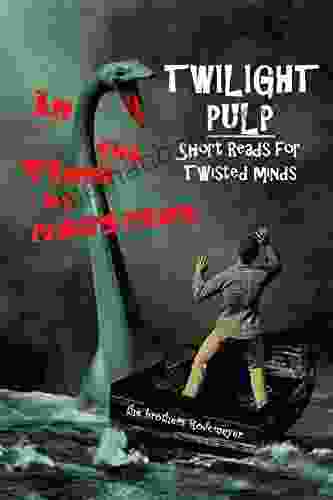
 Christopher WoodsTwilight Pulp: Short Reads for Twisted Minds - A Gripping Anthology of Dark...
Christopher WoodsTwilight Pulp: Short Reads for Twisted Minds - A Gripping Anthology of Dark...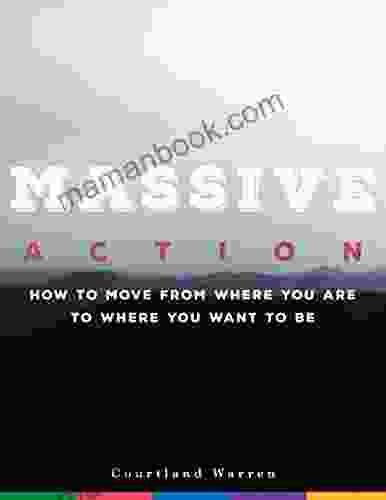
 Israel BellHow to Move From Where You Are to Where You Want to Be: A Comprehensive Guide...
Israel BellHow to Move From Where You Are to Where You Want to Be: A Comprehensive Guide... Hugh BellFollow ·12.3k
Hugh BellFollow ·12.3k Marcus BellFollow ·15.3k
Marcus BellFollow ·15.3k Alexander BlairFollow ·13.1k
Alexander BlairFollow ·13.1k Arthur MasonFollow ·5.2k
Arthur MasonFollow ·5.2k Marvin HayesFollow ·14.6k
Marvin HayesFollow ·14.6k Aaron BrooksFollow ·15.5k
Aaron BrooksFollow ·15.5k Casey BellFollow ·7.9k
Casey BellFollow ·7.9k Ronald SimmonsFollow ·19.1k
Ronald SimmonsFollow ·19.1k

 Ernest Powell
Ernest PowellBenefits of Corporal Punishment: A Review of the...
Corporal punishment is a form of physical...
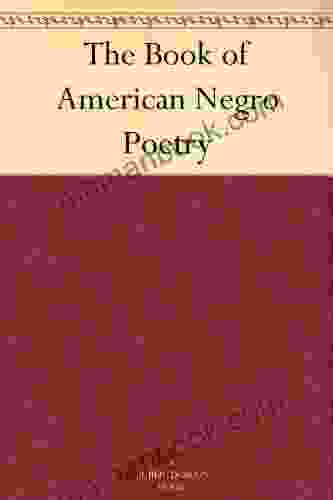
 Bobby Howard
Bobby HowardThe Development and Significance of African American...
African American...
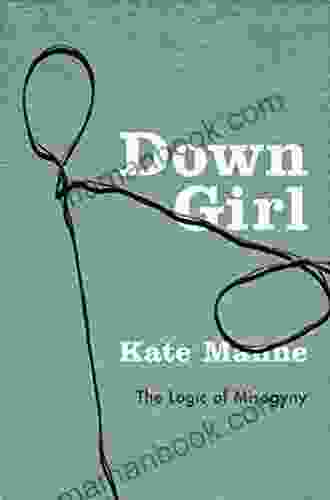
 Guy Powell
Guy PowellDown Girl: The Logic of Misogyny - A Comprehensive...
In her groundbreaking work,...

 Forrest Blair
Forrest BlairThe Bikini Changing Room: A Micro Mini Romance
In the heart of...
4 out of 5
| Language | : | English |
| File size | : | 3598 KB |
| Text-to-Speech | : | Enabled |
| Enhanced typesetting | : | Enabled |
| Word Wise | : | Enabled |
| Print length | : | 320 pages |
| Screen Reader | : | Supported |


